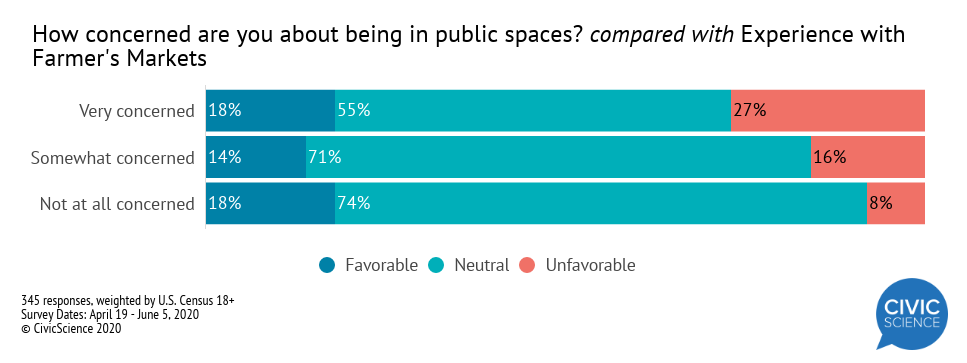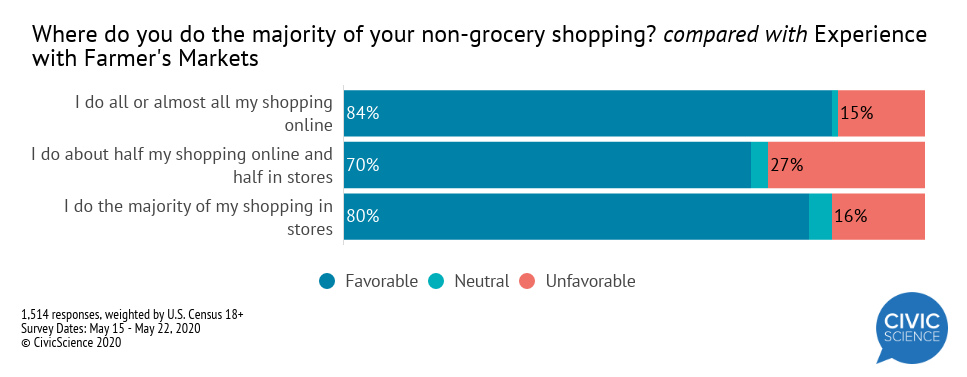With the pandemic keeping many other facets of normal life closed or in decline, it is worth noting that farmer’s markets appear to be relatively secure. CivicScience compared how comfortable consumers would feel returning to a public space with how frequently they plan to go to a farmer’s market (relative to last year). More than 50% of respondents, regardless of their level of concern, said that they would be shopping at farmer’s markets with the same or greater frequency this summer.
This means that despite varying concerns, the majority of market-going Americans are comfortable enough with the idea of attending a market that vendors should be relatively secure in their business.
In fact, only 17% of people who shop at farmer’s markets plan on doing so less than normal this summer. Given the 20% who plan to shop there more, it is possible markets could see overall growth in attendance. Whether it has to do with mistrust of grocery stores or a desire to get outside, farmer’s markets still seem to be a popular consumer shopping spot in the wake of the pandemic.
This makes a lot of sense given that people’s feelings on farmer’s markets are overwhelmingly positive. CivicScience asked over 2,900 people about their experiences and 71% reported having tried and liked a farmer’s market. Only 17% of respondents had a negative or disinterested opinion of them.
Who is and isn’t interested in farmer’s markets is largely not a surprise. People who care about food (i.e., parents, grandparents, people who spend more time looking up recipes, people who read nutritional information on the food they buy) are more likely to have a positive opinion of farmer’s markets.
Parental status is particularly telling. With a 6 percentage point difference between parents and non-parents, it’s clear that having children (whether or not they are still at home) means an increased chance of enjoying a farmer’s market.
Though there is a marked increase in favorability toward farmer’s markets among parents and grandparents, the vast majority (fully three quarters) of non-parents still report favorable experiences. This is not an activity just for parents or foodies, it’s clearly an event that appeals to the shopping habits of mainstream consumers.
In comparing people’s experiences with farmer’s markets to their other shopping habits, it’s clear that those who split their non-grocery shopping between online and in-store are the less likely patrons of farmer’s markets.
That said, more than two thirds of these “less likely patrons” still report favorable experiences. It is clearly not a matter of what groups enjoy farmer’s markets and which don’t, but rather which groups like farmer’s markets more. This is an extremely popular, and apparently pandemic-resilient, facet of the economy.













